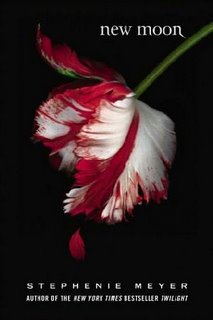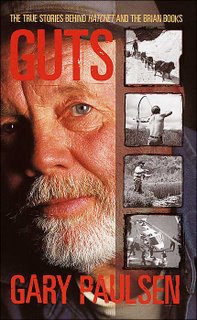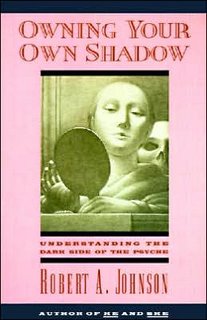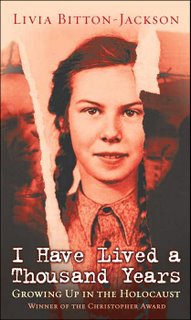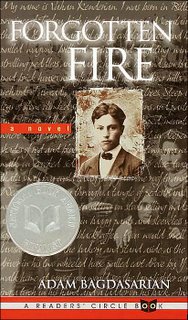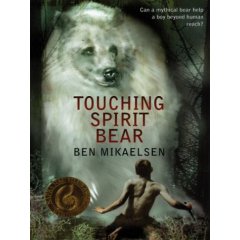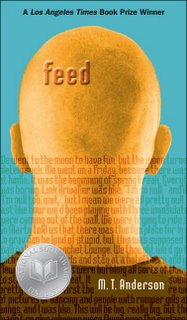I enjoyed this meme over at
Lotus Reads, and thought I ought to give it a whirl. What a great reflective exercise!
1. How old were you when you learned to read and who taught you?
I don't remember the first time I read. What I do recall is lying across my parent's blue bedspread, one leg crossed over the other, my father and I reading
The Real Mother Goose together. Actually, I probably remember this only because my mother has a picture of this moment stuffed away in a drawer somewhere. As for my earliest school days, I remember reading the basals about
Dick and Jane. I never struggled. I don't remember learning how to sound out words. Reading came very naturally to me when I was young.
2. Did you own any books as a child? If so, what’s the first one that you remember owning? If not, do you recall any of the first titles that you borrowed from the library?
My parents were bibliophiles, and they made many titles available to me. I think that I owned just about everything written by Dr. Seuss.
Put Me in the Zoo and
Green Eggs and Ham were my favorites. As I grew older, my mother would buy me titles from
The Bobbsey Twins series, as well as many from
The Boxcar Children series. I enjoyed reading mysteries, and those titles taught me how to make predictions while I read. Funny thing, however, is that I have no recollection of ever reading anything from the popular Nancy Drew series!
3. What’s the first book that you bought with your own money?
When I was in the fourth grade, I remember pouring over the Scholastic Book Order forms Miss Singleton would pass out at school. Scholastic books were cheap, anywhere from fifty cents to two dollars, so I saved up and bought many. I cannot recall which I purchased first:
Charlotte's Web,
Sounder or
Misty of Chincoteague. I loved stories with animals, and my sister and I would often re-live these stories when we played together.
4. Were you a re-reader as a child? If so, which book did you re-read most often?
I was definitely a re-reader. I remember staying up very late at night crying every time
Old Yeller was shot and each time Wilber begged Charlotte not to die. I remember my fascination as I pondered Karana's survival in
Island of the Blue Dolphins. If I had to guess which book I re-read most often, I would say it was
Where the Red Fern Grows. Knowing where and why the red fern grew fascinated me. I think it must have been my earliest realization that literature could present the reader with symbolism.
5. What’s the first adult book that captured your interest and how old were you when you read it?
Saddly, I have no recollection of ever reading older YA literature aside from -- and please don't laugh --
Archie comic books! Mr. Seeke was my English teacher in the eighth, ninth and tenth grades. He loved Hemmingway and Steinbeck. I remember the hook I felt while reading
The Pearl. I think it was the description of the way of life for the poor in Mexico and the bad luck behind the pearl that grabbed me. I could vividly visualize the scorpion making its way toward Coyotito, and I felt a strong sense of injustice as Kino and Juana's lives fell apart.
6. Are there children’s books that you passed by as a child that you have learned to love as an adult? Which ones?
Though I never read her tales as a child, as an adult I fell in love with all of the books in
Mrs. Piggle-Wiggle series. I don't know how we acquired our first copy, but my younger son thought long and hard about her "radish cure," which cleverly convinced a dirty boy that it was important to take baths. I am now the parent of young adults, but even after all those years I think about Mr. Piggle Wiggle every time I catch myself with a touch of "interupter-itis"!
 Fairy tales remind me of those commercials for prescription medications. With the promise of a more fulfilling life, they ought to come with a warning of potentially serious side effects. With that in mind, The Princess Test, Gail Carson Levine's humorous and engaging take on the old fairy tale The Princess and the Pea, has left me torn between delight and disappointment.
Fairy tales remind me of those commercials for prescription medications. With the promise of a more fulfilling life, they ought to come with a warning of potentially serious side effects. With that in mind, The Princess Test, Gail Carson Levine's humorous and engaging take on the old fairy tale The Princess and the Pea, has left me torn between delight and disappointment. 
